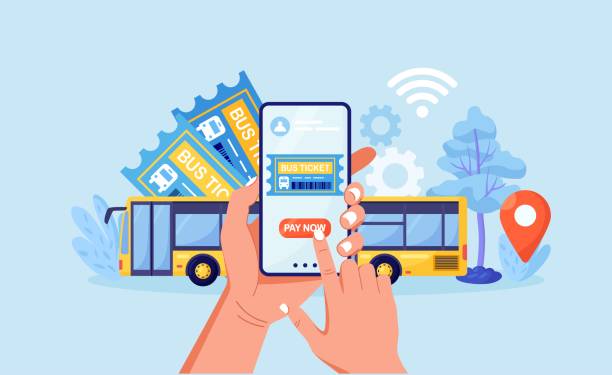Understanding Artificial Intelligence Tickets
In today’s hyperconnected world, Artificial Intelligence (AI) Tickets represent a revolutionary shift in the way events, travel, and service access are managed. These intelligent systems not only optimize the ticketing process but also significantly enhance user experience, security, and operational efficiency.
AI Tickets utilize machine learning algorithms, natural language processing, and real-time data analytics to streamline the issuance, validation, and management of tickets across industries—from concerts and airlines to transportation and customer service. Their ability to analyze behavior, predict demand, and automate customer interactions makes them the backbone of modern ticketing infrastructure.
The Evolution of Ticketing with AI Integration
Traditional ticketing systems relied heavily on human intervention and static systems, often plagued with inefficiencies such as long queues, duplicate bookings, fraud, and lost data. With the integration of Artificial Intelligence in ticketing, these issues are addressed proactively.
AI ticket systems are designed to:
-
Predict user behavior for optimized resource allocation.
-
Detect fraudulent activities using pattern recognition.
-
Enable dynamic pricing models based on real-time demand.
-
Offer personalized experiences by learning customer preferences.
From digital QR codes to facial recognition-enabled access, AI is reshaping how we think about admission and customer validation.
Applications of AI Tickets Across Industries
1. Transportation and Mobility
In public transportation, AI-powered ticketing solutions improve passenger flow and reduce congestion. These systems analyze commuter data, optimize route planning, and adjust ticket pricing dynamically. Cities like London and Singapore have adopted smart ticketing platforms integrated with AI to manage traffic loads and reduce fare evasion.
Airlines use AI-based ticketing platforms to:
-
Detect booking anomalies.
-
Upsell preferred seating and in-flight services.
-
Offer chatbots that assist in booking and rescheduling.
2. Entertainment and Event Management
Event organizers increasingly rely on AI-driven ticketing platforms to manage large crowds and tailor marketing efforts. Using predictive analytics, these systems help organizers anticipate crowd sizes and adjust logistics accordingly.
Key features include:
-
Real-time fraud detection.
-
Sentiment analysis of customer reviews.
-
AI-powered chat support to handle ticketing inquiries.
3. Customer Support Ticketing Systems
In service industries, AI tickets are transforming the customer support landscape. Companies now deploy AI-driven help desk ticketing systems that:
-
Automatically assign support tickets to the most qualified agents.
-
Use NLP to categorize and prioritize customer issues.
-
Learn from historical tickets to suggest relevant solutions.
Such systems dramatically improve response time, accuracy, and customer satisfaction.
How AI Enhances Ticket Security
One of the primary concerns in any ticketing environment is security and fraud prevention. AI provides several layers of protection:
-
Biometric authentication such as facial or fingerprint recognition.
-
Blockchain integration to track and verify ticket ownership.
-
Anomaly detection algorithms to identify unusual purchase or login behavior.
These mechanisms not only protect the ticket issuer but also safeguard user data and build trust with customers.

Personalization Through Artificial Intelligence Tickets
Modern users expect more than just entry—they want personalized experiences. AI tickets deliver this by collecting user data such as location, purchase history, and browsing patterns. This enables:
-
Custom recommendations for upcoming events or services.
-
Targeted promotional campaigns that increase sales conversion.
-
In-app notifications that guide users during events or travel.
Such personalization drives customer engagement, improves brand loyalty, and increases revenue generation.
AI Ticketing Systems and Predictive Analytics
Predictive analytics is at the heart of AI ticketing infrastructure. These systems analyze historical and real-time data to forecast:
-
Demand spikes during peak hours or seasons.
-
Resource allocation needs, such as additional staff or transport vehicles.
-
Maintenance schedules based on usage patterns.
This results in operational efficiency, reduced costs, and better service delivery.
Challenges in Adopting AI-Based Ticketing
Despite the benefits, there are some notable challenges in implementing AI ticket systems:
-
Data privacy concerns due to the vast amount of personal data collected.
-
Integration complexities with legacy systems.
-
Initial high costs for AI infrastructure deployment.
-
Need for continuous training of AI models to adapt to new patterns.
However, with growing demand and technological advancements, these barriers are gradually being overcome.
Future Trends in Artificial Intelligence Tickets
The future of AI ticketing lies in hyper-personalization, autonomous systems, and decentralized platforms. Some key emerging trends include:
-
Voice-activated ticket bookings through smart assistants.
-
AI avatars and chatbots replacing human agents.
-
Decentralized ticketing systems using blockchain for peer-to-peer ticket exchanges.
-
AR/VR integrations for immersive event previews during booking.
As 5G, IoT, and edge computing continue to evolve, the capabilities of AI ticketing ecosystems will grow exponentially, enabling seamless and intelligent access solutions.
Why Businesses Must Embrace AI Ticketing
Organizations that fail to adopt AI-based ticketing systems risk falling behind. Embracing this technology leads to:
-
Cost savings through automation.
-
Enhanced user experience through personalization.
-
Increased scalability during high-demand periods.
-
Improved security through predictive and behavioral analytics.
Forward-thinking businesses must recognize that AI tickets are not just a convenience—they are a strategic imperative for future growth.



